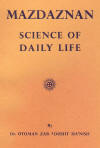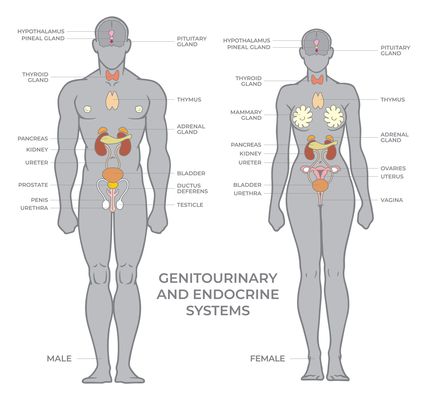Create an account or Login to view the following chapters:
Or order a complete copy of the booklet "MAZDAZNAN - Science of Daily Life"

64 pages for only 5.- Euro plus postage
Create an account or Login to view the following chapters:
Or order a complete copy of the booklet "MAZDAZNAN - Science of Daily Life"

64 pages for only 5.- Euro plus postage
Every age has its revelations; every cycle its inspirations; every decade its innovations; every dispensation its message or call. The Call to the World today is Mazdaznan — the Master Thought. Ma means good or God; zda stands for thought, while znan, abbreviated from yaznan, means accomplished, masterly; in short, master of the good thought or the good thought that masters all things for good.
Mazdaznan declares that the key unto wisdom lies in the power of breath obtained through diligent and religious practices of rhythmic prayers and songs on the breath, i.e., on the exhalation, and the application of a scientific faith which comes to us through the exercise of our gifts, talents, endowments and attributes in the daily walks of life and our ability to cope with the demands of time which alone lead to the solution of the most perplexing problems of life.
The body is comprised of sixteen elements: oxygen, -*- carbon, hydrogen, calcium, nitrogen, phosphorus, chlorine, sulphur, fluorine, potassium, sodium, magnesium, iron, silicon, manganese, and iodine.
These elements are a vital necessity, in order that the body may be able to perform its physiological functions of digestion and assimilation, secretion of the glands, elimination of the poisons from the blood stream and the waste matter from the system.
Therefore, in order to keep the body in a state of health and immune from disease, the blood must contain these elements in balanced proportions, inasmuch as through the blood they are conveyed to all parts of the body to perform their particular function.
Man is a triune being and expresses in his threefold nature physical, spiritual and intellectual propensities. Each individual expresses one of these more predominantly than the others—determined according to the contour of the head, which is governed by the degree of activity and development of the brain cells in any given part of the brain.
This predominant unit of the three-fold nature, which corresponds to the assimilative, generative or dynamic, function, is called the "Base," whilst the remaining two are called the " inclinations "—the first inclination, which is usually the stronger of the two, is determined by the degree of development on the left side of the head.
Nature aims at an appropriate balancement of all three units, and whilst remaining true to one's base, partaking of the appropriate foods and choosing a vocation or profession best suited to one's individual make-up, one should aim at the development of the weaker propensities in order to evolve and be able to function readily on the three planes of consciousness.
Inasmuch as the Circulatory System, by action of the respiratory organs, controls the motive power of cellular functions and the Nervous System upholds the organic operations, so the Glandular System stirs the mental realms for further developments of a higher nature, quickening the weakened battery of life, and regenerating new power for the unfoldment of yet unknown intelligences hidden within the brain cells.
The brain cannot be reached in any other way except through the medium of the glands; the glands cannot be reached unless the corresponding sympathetic nerves operate in harmony therewith ; again the nerves cannot be reached—or one cannot gain control over them—unless one has learned to control the circulatory system; and the circulatory system depends upon the breathing capacity—ox the degree of elements converted into chemical compounds—purifying the venous blood and transmuting it into arterial blood.


